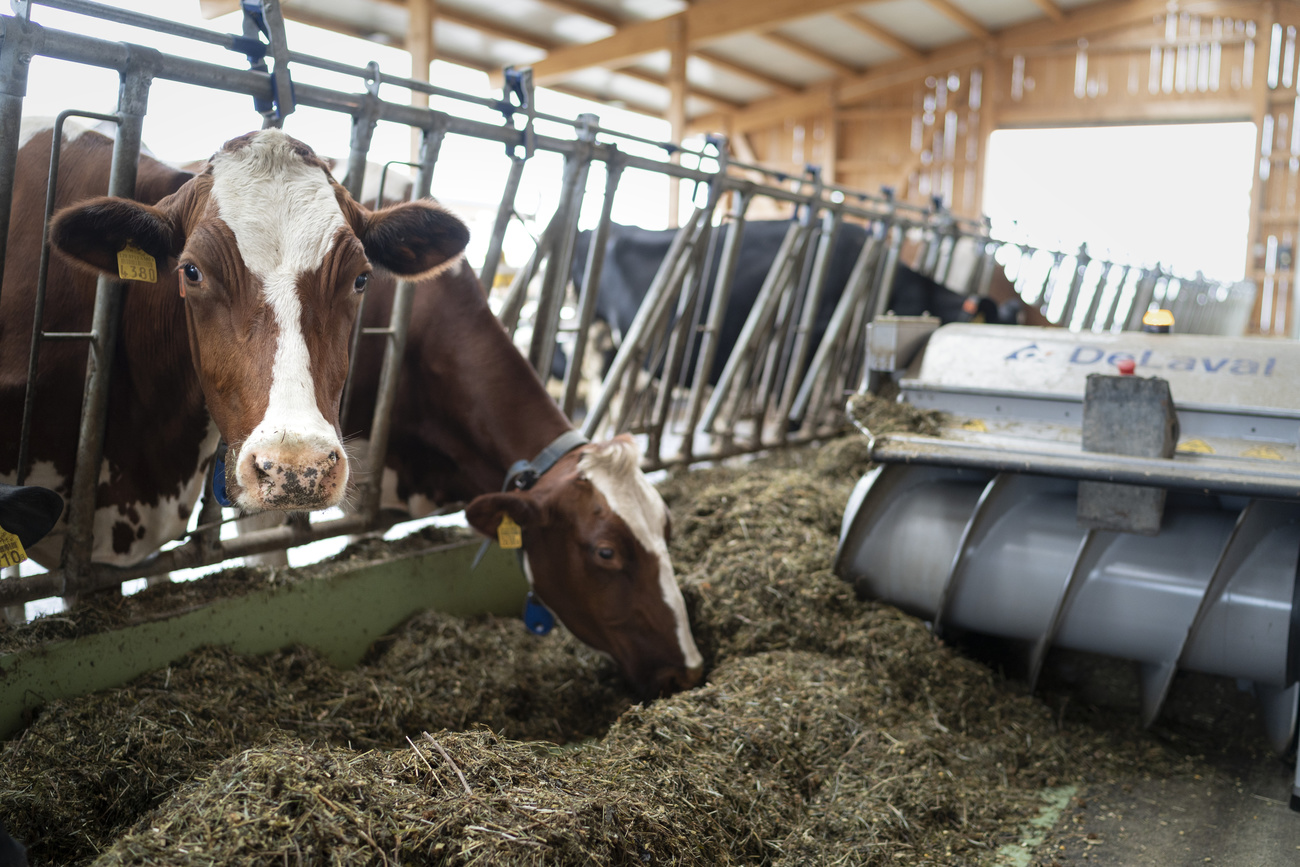Should cows be fed additives to reduce the climate change impact of livestock farming?
Food companies are trying to reduce their greenhouse gas emissions by getting suppliers to give their cows special methane-reducing feed. Would you be okay with consuming these meat and dairy products, or would you want more information to decide?

More
Are food firms’ efforts to reduce cow fart emissions a lot of hot air?
Medicinal and aromatic plants are more effective than oil in inhibiting methanogens. Because they contain more terpenes, polyphenols and lignans, which are more toxic to methanogens than polyunsaturated fatty acids. Since these compounds are lipophilic, they accumulate in cytoplasmic membranes and thus disrupt methanogen cell membranes, thus reducing methane production. Methane production provides a pathway for excess pyruvate, thus maintaining the redox balance of the ruminal environment, while reducing the amount of metabolizable energy obtained from the diet and thus increasing the energy required for product production. A reduction in methane concentration can reduce atmospheric greenhouse gases and increase feed efficiency. Because methane emissions account for approximately 10% of gross energy loss from feed intake.
Dr. Yavuz Gurbuz
At first reading I had to laugh: 'Look at that, even the serious Swissinfo.ch is getting into humour'! Then I saw that someone like Nestlé is serious. Obviously it has sniffed out the bargain: to give itself a 'green' and 'Methanfree' guise to appease the Greens and the climate extremist-hysterics, they are studying chemical stuff to add to the food of the dairy herbivores (grass and hay + vattelapesca).
I am more concerned about these chemical additions altering the normal digestive process of our cattle than the methane emitted by their farts and belches. Perhaps some here, business aside, have lost their sense of reality, now taking it out on the poor cattle to improve the global climate. Obviously, I am against these chemical gimmicks that serve no purpose except to increase Nestlé's business in search of a hypocritical 'green' guise.
A prima lettura mi è venuto da ridere: "Ma tu guarda, persino la seriosa Swissinfo.ch si è messa a fare dell'umorismo" ! Poi ho ho visto che qualcuno come la Nestlé fa sul serio. Ovviamente ha fiutato l'affare: per darsi una veste "green" e "Methanfree" per tranquillizzare i Verdi e gli estremisti-isterici climatici, stanno studiando roba chimica da aggiungere al cibo degli erbivori lattiferi (erba e fieno + vattelapesca).
Mi preoccupano di più queste aggiunte chimiche che alterano il normale processo digestivo dei nostri bovini, che non il metano emesso dai loro peti e rutti. Forse qualcuno qui, affari a parte, ha perso il senso della realtà, prendendosela ora con i poveri bovini per migliorare il clima globale. Ovviamente sono contrario a queste trovate chimiche che non servono a nulla, se non ad aumentare il giro d' affari della Nestlé alla ricerca di un'ipocrita veste "green".
In my opinion this is a money making scam. The very idea that you can change the climate by reducing cow farts is ludicrous. Sure you will find paid scientists who will write a paper saying that this is a great idea. There is no long term data on the effects it has on humans from consuming meat from animals that are fed these chemicals. The bottom line is that climate climate change hysteria is being used a vehicle make money.
Unfortunately, I have to agree fully with you. Many of these schemes and campaigns have been turned into a money-making thing and also for political manipulation.
If producing our food and if even animals are now considered a nuisance because they generate climate change, then maybe at that point it is worth starting to consider that climate change is a natural thing that is linked to our destiny. Then we should adapt rather to fight it. What is more crazy: starting to produce food in laboratories using chemicals, engineering and electricity and giving chemicals to cows and pork for they dont fart or adapting ourselves to climate change? I think many governments and a significant part of the scientific community overestimate their understanding of how the world functions, they think that they come with solutions to fix climate change but i think it may in the end make things worse.
Interesting point. Do you think we should simply accept methane from cows and try to invest our resources on adapting to climate change instead?

Join the conversation!